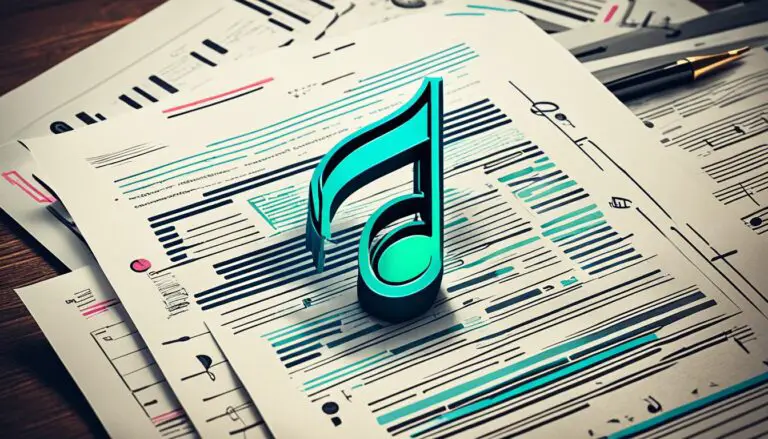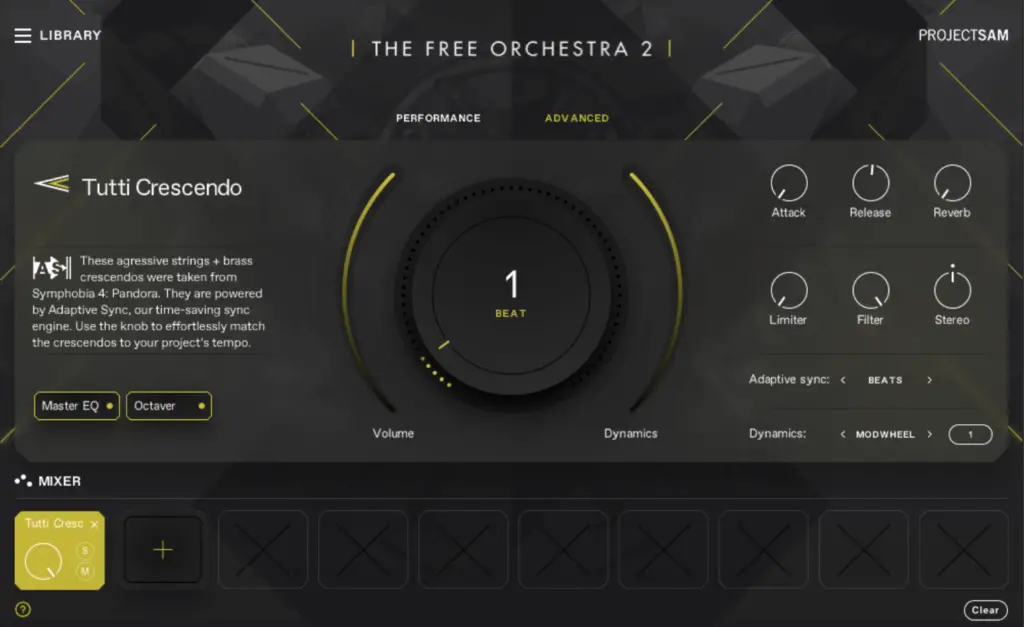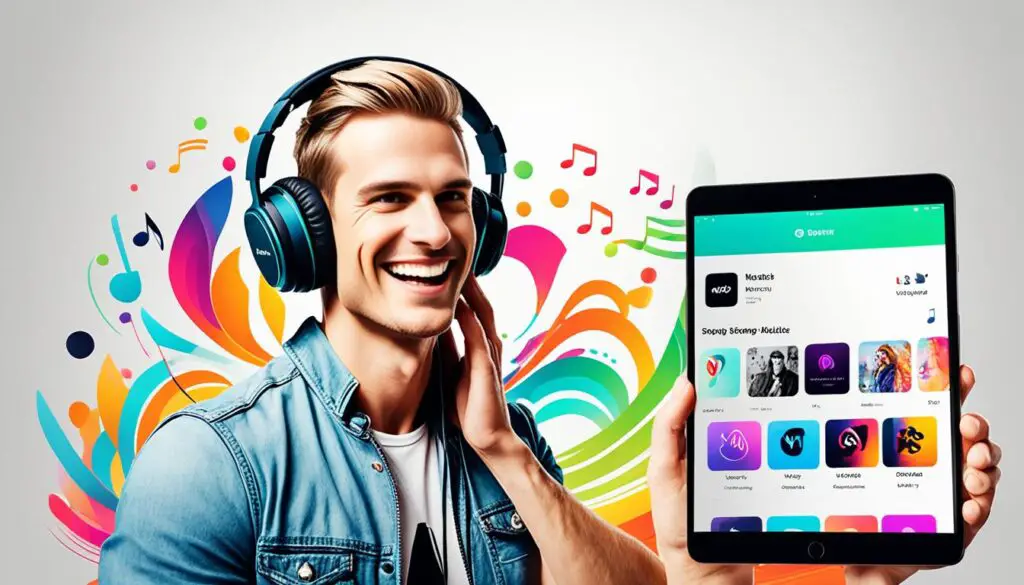Do you ever think about how musicians make their dreams into money? It’s extremely important to know about music licensing. Musicians have very strong rights to their songs. But, making money from these rights needs an understanding of music copyright and royalty payments.
Music copyright is all about protecting your songs. Knowing this helps you earn money from your music. In the music world, each time your song plays, it might make you money.
So, learning the basics of licensing is key. It helps you not only make money but also guard your artists’ rights.
Key Takeaways
- Music licensing turns your music into earnings.
- It means giving permission for commercial use for a set time.
- Knowing music copyright protects your music and gets you paid.
- Selling your music directly keeps all the money but needs industry skills and time.
- Royalty payments need clear rules, which you get through publishing deals.
Understanding Music Licensing and Its Importance
Music licensing protects copyrighted music. It ensures only the right people can use it. Artists make money through these agreements and keep their songs safe.
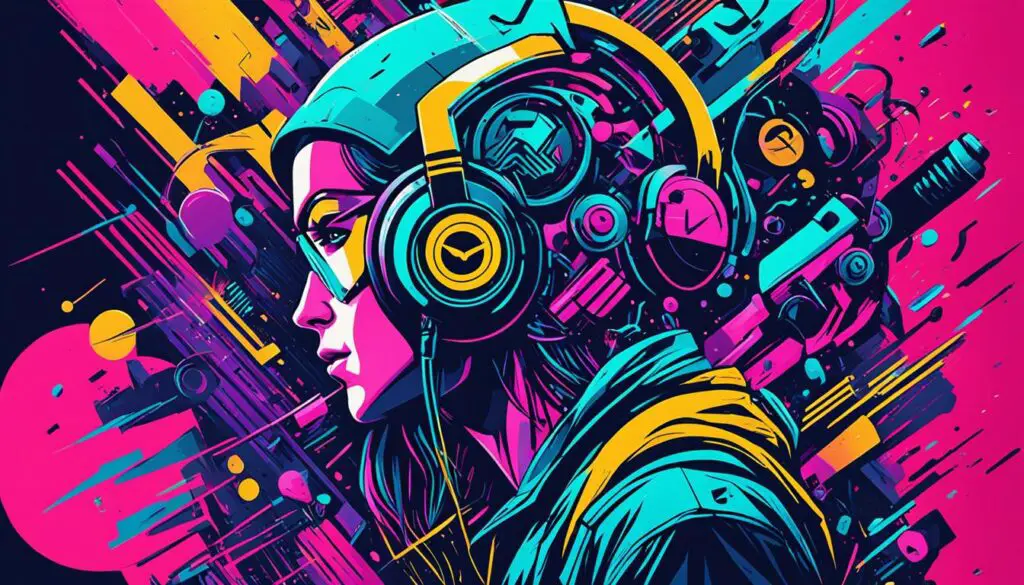
What is Music Licensing?
Music licensing is about setting rules for using songs. It lays out how music can be used, for how long, and who gets paid. The owners of the music, like composers or record labels, decide these rules. Knowing about music licensing helps artists protect what’s theirs.
Why Music Licensing Matters
It’s crucial to pay artists for their work. Music is key in media like radio and TV. Licensing ensures these artists earn from these uses.
The Financial Benefits for Artists
Getting into licensing can bring in a regular income for artists. It’s especially helpful for those working solo. Artists who understand these deals can make more money from their songs.
Here’s a detailed table demonstrating key points:
| Aspect | Description | Importance |
|---|---|---|
| Intellectual Property | Ownership of the music’s composition and recording, including the rights to control and monetise it. | Vital for ensuring authors receive recognition and financial compensation. |
| Broadcast Media | Platforms that play music publicly, such as TV, radio, and streaming services. | Primary sources of revenue through licensing agreements. |
| Licensing Agreements | Contracts that outline terms for using the music, including timeframes, payment terms, and scope. | Ensures authors’ rights are protected and they receive appropriate compensation. |
| Royalties | Ongoing payments received by rights owners for the use of their music. | Essential for sustaining artists’ livelihoods and ensuring continued revenue. |
Types of Music Licences Artists Should Know About
It’s key for artists to know different music licences available to protect their work and earn money. Each type has its own goal. They help regulate how people use music and how artists get paid for it.
Here are the main licences artists should know about.
Synchronisation Rights
A synchronisation license allows songs to be used with visual media. This can be in movies, ads, or video games. Getting the proper permit is vital. It ensures the use of songs is legal and helps the artist financially.
Mechanical Rights
The mechanical license is about making copies of songs on CDs or digitally for downloads. Artists can earn from their music on sale or streaming this way. They get a fee for each copy made, benefitting from their creative effort.
Public Performance Rights
A public performance license is needed for music played in public, like at concerts or on the radio. It makes sure artists get paid when their music is played live or broadcast. Those payments create a steady income stream for artists.
Master Recording Licence
The master recording license lets artists approve the use of their original recordings. It’s important for things like sampling in new songs. They can decide how their music is reused and profit from it.
Blanket Licences
A blanket license offers a series of songs for use for one fee. It’s often used by places like radio stations or bars. This kind of permit makes it easier for these businesses to play music. It also makes sure artists are paid for their songs.
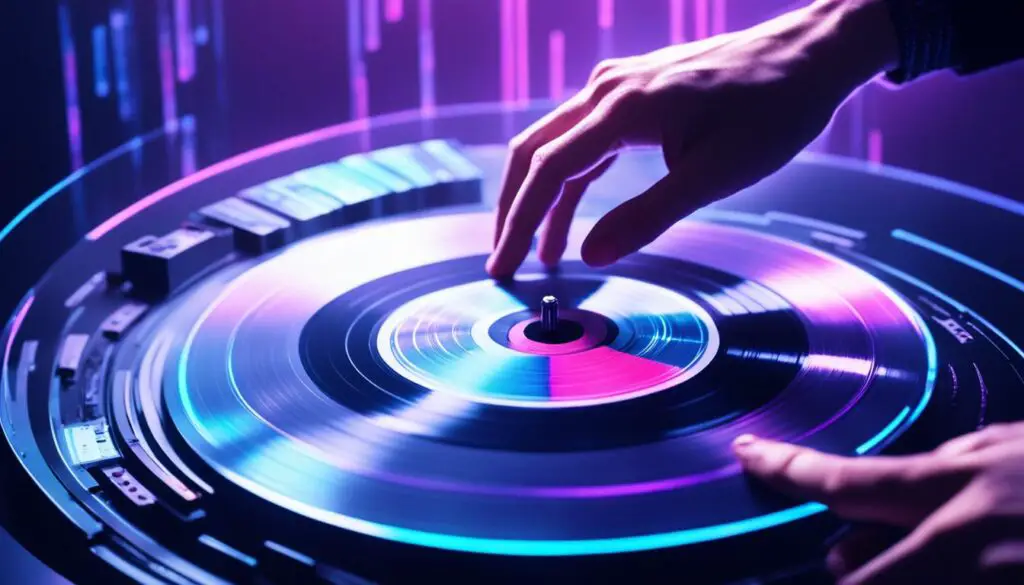
By knowing and getting these music licences, artists can take control of their music. They can ensure they’re paid fairly and keep their say in how their music is used.
Music Licensing, What You Need to Know
To make money from their songs, artists should understand music licensing. This means getting legal permission to use their music in films, ads, or games. Getting this permission opens doors for artists to showcase their music.
Artists keep their songs’ rights, which protects their work. They can use their music commercially as long as they agree to payment terms. When different media use a song, the artist gets paid. Knowing how to negotiate these payments well can earn an artist a lot of money.
Here’s a table showing how costs for music licenses are calculated:
| License Type | Typical Use | Factors Influencing Cost | Average Fees (£) |
|---|---|---|---|
| Sync License | Film/TV | Audience reach, budget | 500 – 10,000 |
| Mechanical License | CDs, Downloads | Copies sold | 0.08 per copy |
| Public Performance | Radio, Venues | Frequency, size of venue | Varies significantly |
Venues need licenses to play music legally. This helps artists get fair payment. It also makes music use better for everyone involved.
Knowing about music licensing opens doors to better jobs and more money. It shows how important managing fees and understanding royalties are for artists. This helps them make the most from their music while keeping control.
The Role of Music Licensing Organisations
It’s crucial for artists to know about music licensing. These groups help with managing and sharing out royalties. This means artists get paid fairly for their music.
Performing Rights Organisations (PROs)
PROs, like PRS for Music in the UK, make sure artists get paid for their music being played in public. This could be in concert halls, on the radio, or through streaming services. They collect these fees and give them to the right people. This helps artists from all over reach bigger audiences.
Mechanical-Copyright Protection Society (MCPS)
The Mechanical-Copyright Protection Society (MCPS) looks after the money from music being copied. This covers things like vinyl records, CDs, and digital downloads. By handling these fees, MCPS makes sure that songwriters and publishers get their share from these reproductions.
Phonographic Performance Limited (PPL)
PPL focuses on collecting money from music being played in public. This includes places like cafes and shops. By doing this, PPL makes sure artists get paid whenever their music plays in public. These groups also help protect the rights of artists, adding more security for them.
Music licensing organisations play a big part in the music world. They help connect artists to how their music is used across many platforms and places.
How to License Your Music
Getting your music licensed might seem hard at first. But, by following some key steps, it becomes easier. First, you need to figure out who owns the copyright. This is important because it shows who can say ‘yes’ to using your music.
Selling your music for use in films, TV shows, and ads can make you money. These deals are called sync deals. They put your music in front of a lot of people, creating more chances for fans.
Working with music libraries is also smart. They help you get your music into different projects. You keep the rights to your music but get help in sharing it with more people.
It’s also vital to understand the money side, like sync fees and royalties. This makes sure you get paid fairly and regularly. Artists can either license music themselves or use these libraries. But they keep control over their music.
Appropriate licensing is key for both earning money and getting seen more. It’s a must for today’s musicians.
Protecting Your Music Rights
To protect our music rights is key for controlling our creative works and getting fair pay. Knowing about music copyright helps us move through its complexities. So, we can protect our rights smartly.
Understanding Music Copyright
When we create original music, copyright protection starts right away. It covers the music itself, the words, and even the recordings. This gives us special rights over our music. Remember, you don’t have to register it to be protected. But, registering can make your legal claim stronger.
Registering Your Music for Copyright
Registering music with a reputable body gives solid proof of creation. This proof is crucial if someone uses your work without permission. The UK Copyright Service and others offer such registration. With your music registered, you have what’s needed for legal action if there’s a problem.
Dealing with Unlawful Use
Handling someone using your music wrongly can be tricky. It’s important to show clear evidence of them using your music without permission. After that, getting legal advice is smart. They can guide you on what steps to take.
Sometimes, sending a cease and desist letter is enough to stop the issue. This might prevent long legal fights. If the problem continues, you might need to go to court. This is to make sure your rights are protected and to seek fair compensation.
Conclusion
As we wrap up, understanding music licensing is key for artists. This boosts their chances in the music world. The music business is tricky and requires knowing copyright laws and licence types. This helps artists do better in the industry.
Groups like Performing Rights Organisations (PROs) and Mechanical-Copyright Protection Societies (MCPS) help us. They make sure artists are paid fairly. Using their help can turn an artist’s situation from tough to successful.
We, as guides in the industry, need to keep looking for chances to licence music. This could be through deals for film soundtracks or putting songs in libraries. The right moves in licensing can bring in good money and protect our music’s value. Knowing about licensing lets artists find and use new paths, keeping their creative and money matters solid.

